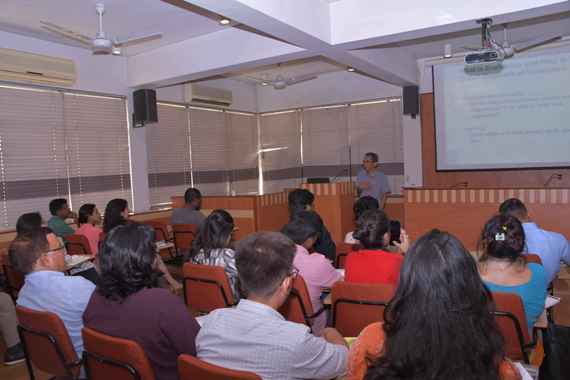A workshop by Dr. Emmanuel Jimenez organized by the Indian School of Public Policy (ISPP) in the capital city

New Delhi, 13 July, 2019: Impact evaluation is a powerful tool for understanding and evaluating the impact of any intervention. Impact evaluation is a study of changes in outcomes that are attributableto an intervention. It basically asks, what would have happened without the intervention or program. The discourse on impact evaluation as an economic method to assess the impact of any government policy or a programme is growing. In fact, in India almost 80% of all impact evaluation studies are conducted in four sectors — education, health/nutrition, social protection and agriculture and almost half are in health and nutrition alone. But a considerable more needs to be done.
The Indian School of Public Policy or the ISPP organized a workshop on Hard Evidence for Tough Decisions: Evaluation in Development Policy by Dr. Emmanuel (Manny) Jimenezon 13 July, 2019. Dr. Emmanuel (Manny) Jimenez is the Executive Director of 3ie, which he joined after three decades of service at the World Bank Group, where he provided technical expertise and strategic leadership in a number of research and operational positions.
Manny explained the concept of impact evaluation and its tools of randomized control trials, regression discontinuity, differences in differences and instrumental variables in the simplest manner. Using examples in India and many other countries, he emphasized the crucial importance of impact evaluation in development. In particular, he engaged with three interventions in India – environmental auditing in Gujarat, corruption in MNREGS in Bihar and school education in Haryana, and showed how impact evaluation led policymakers to better appreciate their interventions.
Engaging with policymakers is the most difficult task. He said, “The challenge we face in impact evaluation is communication with policymakers. While they want clear, decisive, immediate and easy to implement results, researchers often have nuanced, balanced, and not-always-practical results. It is important therefore that scholars in impact evaluation engage early, widely and often with policymakers.’
The workshop concluded with an interactive session that saw participants pose a number of questions pertaining to the place of qualitative studies as opposed to quantitative, evidence-based decision making and India’s experience. Most of the participants that attended were either studying public policy or interested in taking this subject up in order to bring about much needed societal change. They were deeply appreciative of the simplicity with which Manny explained such a complex idea.
Source: https://highereducationplus.com/hard-evidence-for-tough-decisions-evaluation-in-development-policy/

